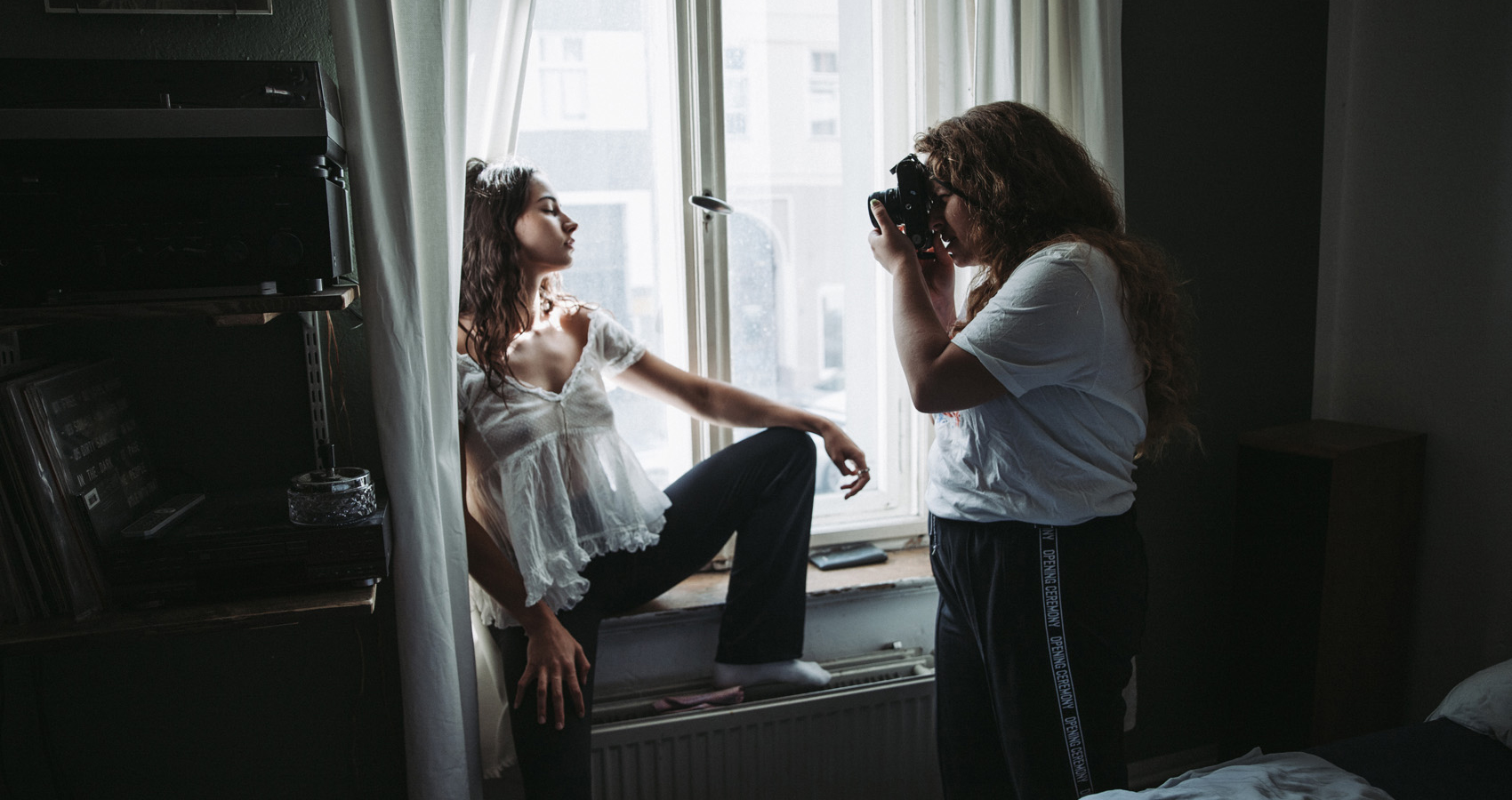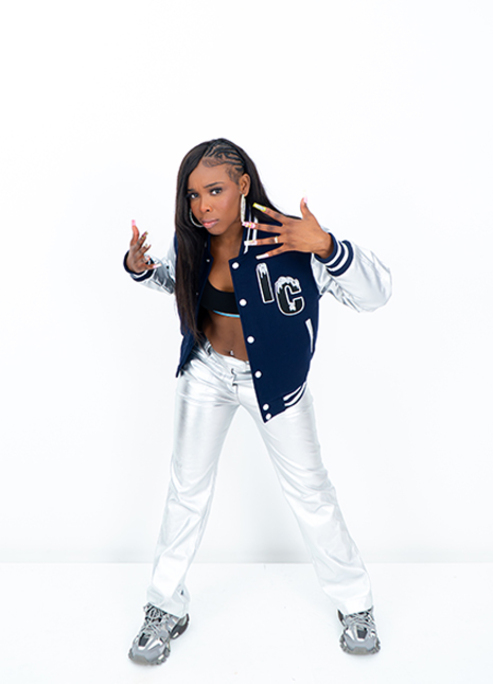Photographer Agatha Powa On Creativity, Working With Converse, And Her Life Behind The Camera
Feel the Powa.
It wouldn’t be too much of a stretch to call Agatha Powa a creative polymath. Starting off as a dancer she then moved to London to study acting, and after returning to Berlin to assist with the post-production of a documentary film, fell in love with photography. The beautiful dreamlike aesthetic and striking style of her photographs has landed her in a career as a visual storyteller. She's already worked with Nike and Adidas, had a campaign for Converse under her belt and photographed a whole roster of musicians from Fatima to Shabaka Hutchings.
We catch her outside a café down the road from her flat in Berlin’s Kreuzberg. She’s just returned from a trip to a lake with her girlfriends and drills me with questions before laughingly admitting that she doesn’t enjoy interviews and would rather we swapped roles. This unease at being the subject in front of the camera is antithetical to the natural confidence she has when directing from behind it. Although her photographs can be bold and confrontational they are also touchingly sincere, intimate, and nostalgic. Successfully providing us with a colourful pinhole into other lives and relationships.
Despite her ability, she is humble about her work. Self-deprecating and softly spoken she laughs infectiously and often, offering up apologies for being inarticulate when in reality she is far from it. She spoke eloquently to us about her life and the relationship between her art and human connection.
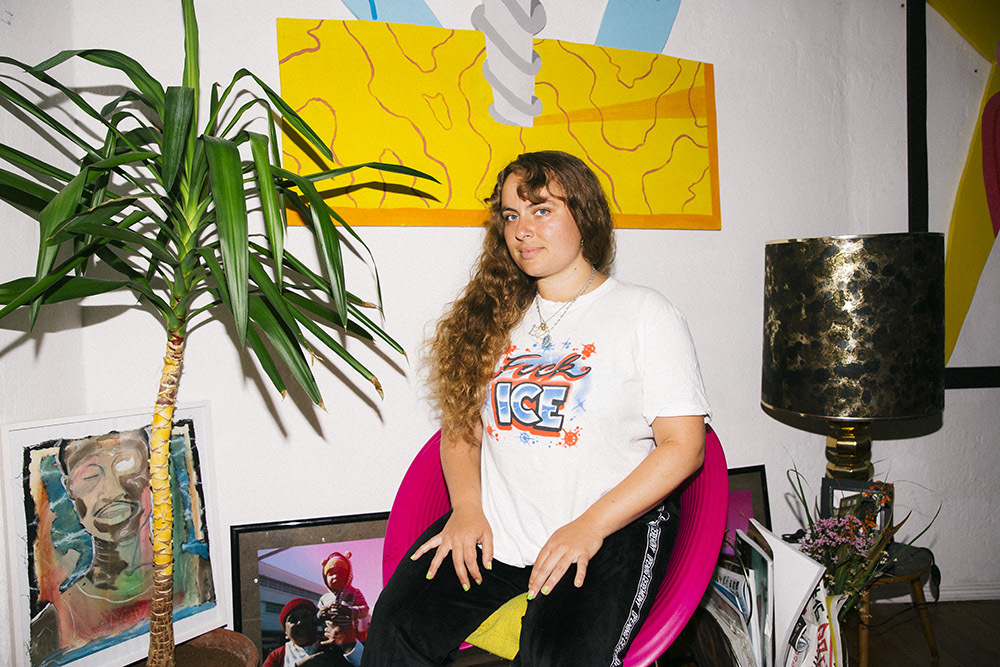 Agatha in her room in Berlin Kreuzberg.
Agatha in her room in Berlin Kreuzberg.
How would you describe your practice?
People know me for photography mainly. I love to shoot people and if I travel I do documentary photography. There are so many interesting and amazing human beings on this planet. I love that I get to share a couple of them. I tend to shoot creative people more, I love music and so I enjoy shooting musicians. But I find beauty in everyone. It’s amazing to create a connection between the subject and myself, where the trust between us is big enough to capture a moment of truth. I’m naturally finding my own voice within what I do. It’s a lot of trial and error and spending a lot of time on it. Figuring out what tools and language speak to me and what feels the most natural.
Can you think of specific projects where you’ve been able to make a connection like that? Or any that have been particularly meaningful to you?
My favourite moments of shooting are always linked to the people I meet. I once shot a musician that I didn’t know personally but I loved his music. His name is Nick Hakim, (check him out he’s amazing) we connected on a human level as we had similar views on the world and we’re now friends. That’s the beauty of photography. You can connect to people in a way that you otherwise wouldn’t with certain individuals.
My first campaign was a collaborative one for Converse x MadeMe x Isla Berlin. The amazing thing about it was getting to work with friends, and also seeing my work in the streets of Berlin. The photos were hung from metres high and the whole project was a lot of fun in general. It was demanding though as I was shooting on film and developing it in the same day. I had to hire someone to develop the film for me overnight, as the deadline was so tight. That was definitely a milestone.
I have a job coming up which I’m very excited about. Although I can’t talk much about it as I’ve signed an NDA. It will be demanding, as it’s a big production with sets, in a studio and should be fun, but I'm a little nervous.
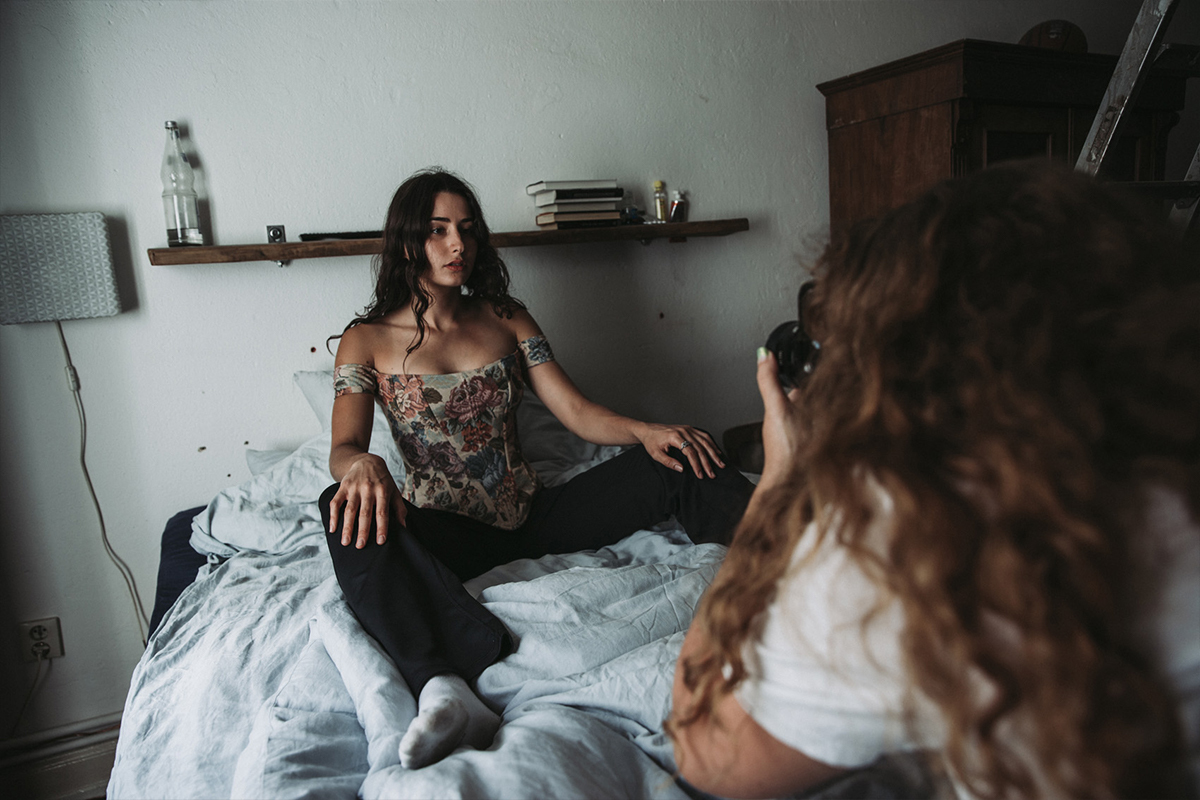 Agatha shooting with a 35mm film camera.
Agatha shooting with a 35mm film camera.
Is shooting in analogue important to you?
I would say that it’s the most important part of my work. I shoot only in analogue if I can, for bigger clients and commercial jobs I shoot in digital but my love of photography is connected to film. As far as I can remember I’ve only used an analogue camera, my first one was an old Polaroid from my Grandpa. That’s how I started shooting when I was 8 or 9.
I love the look of film, and the grain of it, but the best bit about it is that you never know exactly what you're getting until you develop it. That is a whole other aspect, which belongs as much as taking the photo to the art itself. How do you develop? What do you print on? It’s a super interesting craft and it’s much more fun than digital.
More generally speaking what does art mean to you?
Art is magic, art is necessary, art can bring change, art is expression, art is therapy, art is life. It’s a reflection of life. It’s a great tool to reach people that you may not otherwise be able to reach with words.
Has being creative influenced your sense of identity?
I’ve been a creative my whole life, not being a creative would make me very depressed! I would be lost. I wouldn’t know how to connect with myself and others without it. It helps me a lot as I am able to express myself. I don’t know a life without creativity and I’m grateful for that.
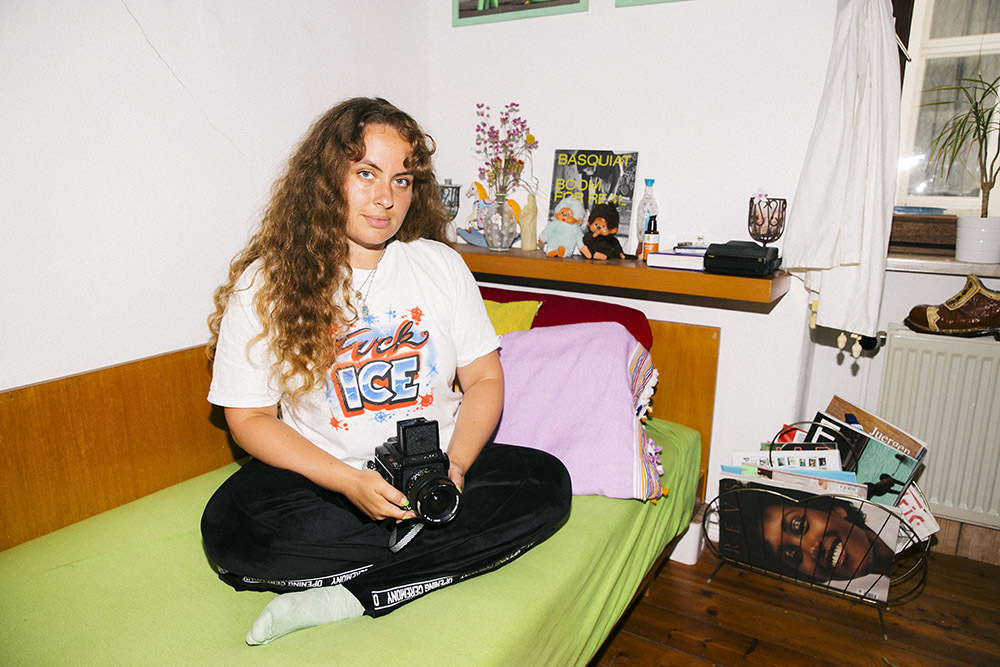 Agatha in her flat in Berlin Kreuzberg.
Agatha in her flat in Berlin Kreuzberg.
Have certain moments in your life shaped the way you create?
Everything inspires how I create. It can be literally anything from an interaction with a stranger on the street, to death. Death is a big factor. My photography career started when a friend passed away and I moved to Berlin, I had been living in London before that. He was a really inspirational person who touched a lot of people in London and suddenly he was gone. I had always wanted to do film, and him passing gave me the motivation to try something that I’d always wanted to do but had been too scared to dive into. So I ended up assisting with a documentary film, to build on the language of lighting, angles and frames that I had picked up at drama school. I decided to focus on photography first. I stuck with it and fell in love with it so didn’t proceed into moving image until last year. I’m finally playing around with it now.
So is your creativity an act of catharsis? Or is it an attempt to record the world around you?
It’s both. Photography is a way for me to record and portray things that are dear to me and to my heart. On a personal level its definitely cathartic, but I think you have to be careful with that. If you don’t find the balance then it’s a very unstable and unfulfilling way of living; just chasing this moment of catharsis, which is temporary and cant stay that way. I'm glad that it’s not just that way for me.
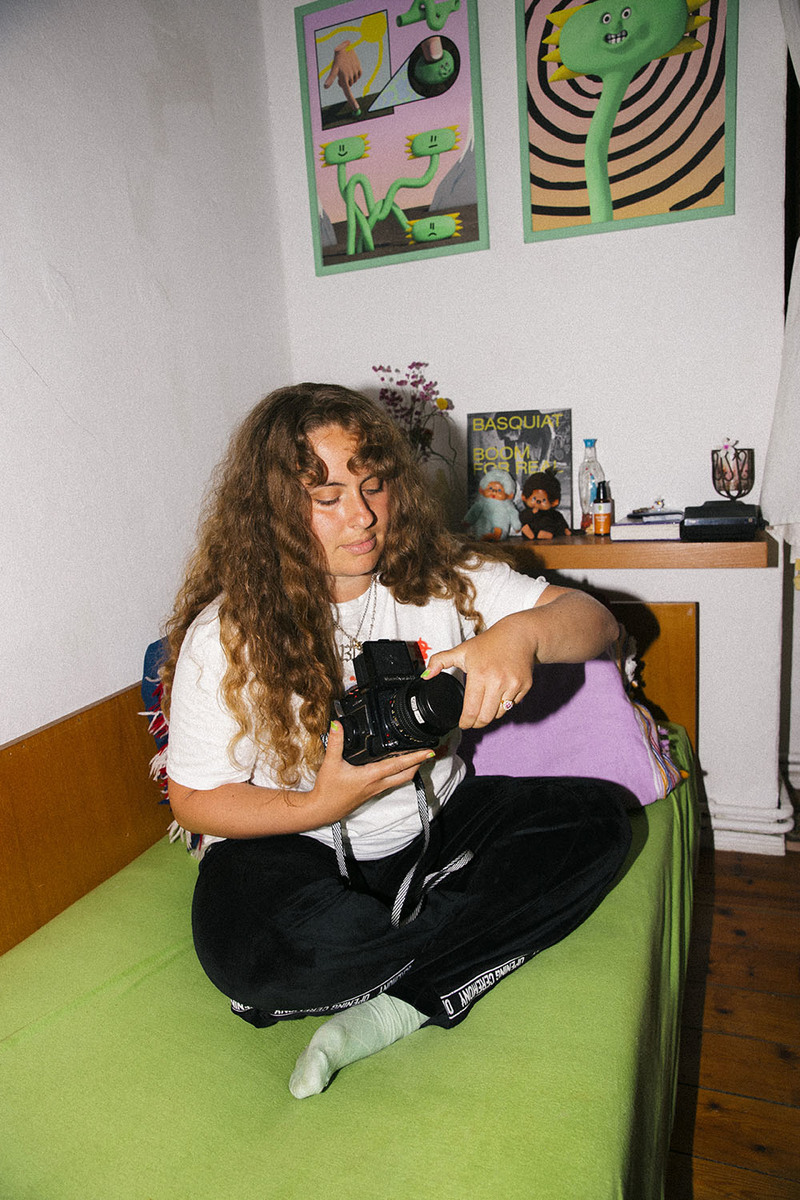 Aga showing us the lens one of her film cameras.
Aga showing us the lens one of her film cameras.
The past few months have affected so many creative industries, did the pandemic affect your work?
The pandemic took all of my work; I’ve had no jobs since March! I’ve just booked my first big job for next week, which I’m really grateful for. It got to a point where I was starting to freak out a little bit and was looking into other options to earn. It definitely affected my career in a big way but it has had its positives. It gave me time that I’ve never previously taken for myself. I thought about my next steps, I worked on my portfolio, and made a book. It showed how there are lots of things that you can still do that relate to your interests in unexpected ways. I have lots of ideas for the future now.
To check out more of Agatha's work head to agathapowa.com.
Up Next, In Conversation With Berlin's Hottest Stylist, Theresa Gross



